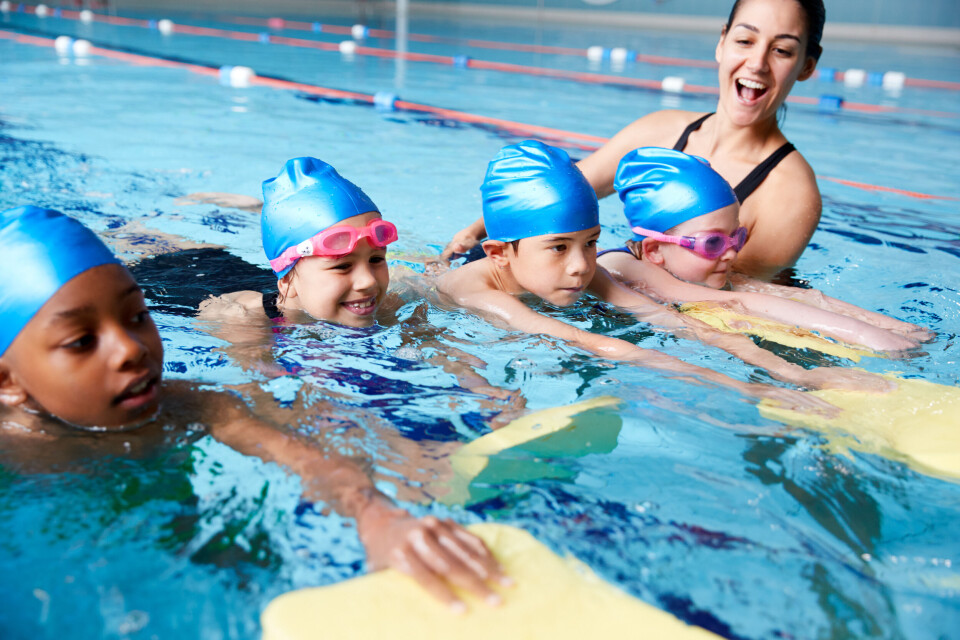-
Strikes and protests in January 2026 and how you may be affected
Doctors, rail staff, and farmers are all taking action
-
Good news as lower electricity bills confirmed in France
The change is not a ‘revolution’ but will give some purchasing power back, minister says
-
French ski resorts report excellent Christmas despite less snow than last year
Bookings are up and non-snow related activities are also on the rise
France continues its free summer swimming lessons for children
Classes aim to help four to 12-year-olds gain competency in water, with studies showing that 25% of drowning incidents involve children under six. Here’s how to book a place

Did you know that children aged four to 12 in France who do not know how to swim are eligible for free classes from the swimming association la Fédération française de natation (FFN)? Here is how to book.
The Sports Ministry has confirmed it has renewed the ‘J'apprends à nager’ scheme for six to 12-year-olds, and the ‘Aisance Aquatique’ scheme for four to six-year-olds.
The classes introduce children to water and eventually teach them to swim so they can “acquire the skills needed to operate safely in water”.
The aims are:
-
to promote safe access to aquatic and water sports;
-
to prevent the risks associated with swimming and therefore to avoid drowning;
-
to discover the pleasures of water and swimming;
-
to have a positive experience of water;
-
and to obtain a certificate for the ‘know how to swim’ scheme on entry to 6ème (middle school)
Places are particularly aimed at children who do not yet know how to swim as well as those who live in priority neighbourhoods (quartiers prioritaires de la politique de la ville, QPV) and in rural revitalisation areas (zones de revitalisation rurale, ZRR).
The public services website states that classes should include a swimming course of at least 10 hours, with sessions of 30 minutes to one hour depending on the level and age of the children.
The groups will be made up of 15 children maximum for six to 12-year-olds, and 10 children maximum for four to six-year-olds who cannot swim.
At the end of the course, children aged six to 12 are invited to take the ‘Sauv'nage’ test if the instructors believe them to have acquired the necessary skills. If they pass the test, they will receive a ‘diploma’, which certifies that they “have the skills to practise aquatic and nautical activities in complete safety”.
The FFN maintains a regularly-updated list of sites that run the classes, and to which you can sign your child up. The list shows the details of who to contact to sign up, and where to go for the classes.
A medical certificate from within the last three months is usually required, as is signing up for insurance as part of the subscription process. The classes normally take place during school holidays or at the weekends.
The classes themselves are always free, but at some sites a small fee may be required to cover insurance. It is usually not more than €15.
Water accidents
This year’s renewal of the scheme comes after the most recent study by health body Santé publique France (SPF) found that there were 1,753 drowning incidents (fatal and non-fatal) between June 1 and September 30, 2021.
Of these, 549 (or 31%) were fatal.
A drowning incident is defined as when there is an intervention by emergency services followed by the patient being admitted to hospital or dying.
Of these 1,753 incidents, 1,480 were unintentional drownings – the result of an accident.
A further 181 were so-call ‘intentional drownings’, whether from suicides, attempted suicides or assaults.
Finally, 92 were not classified or are still being investigated.
Of the drownings that were fatal, 172 (44%) occurred at sea, 75 (19%) in rivers, 79 (20%) in lakes, 59 (15%) in swimming pools and 9 (2%) in other places.
SPF said that during the first half of June 2021, the number of incidents rose considerably, which it explained was likely linked to the lifting of Covid restrictions. This prompted more people to head outside without considering how their health may have suffered during lockdown, it said.
In contrast, it said that the first two weeks of July 2021 saw relatively few incidents, partly explained by the less-than-excellent weather conditions, which stopped people from venturing into the water. There were 103 accidental drowning incidents between July 1-15 2021, compared to 267 over the same period in 2018, it said.
Related articles
Nine swimmers drown in Mediterranean during south of France storms
Calls for 'swimming licence' to reduce number of drownings in France
























